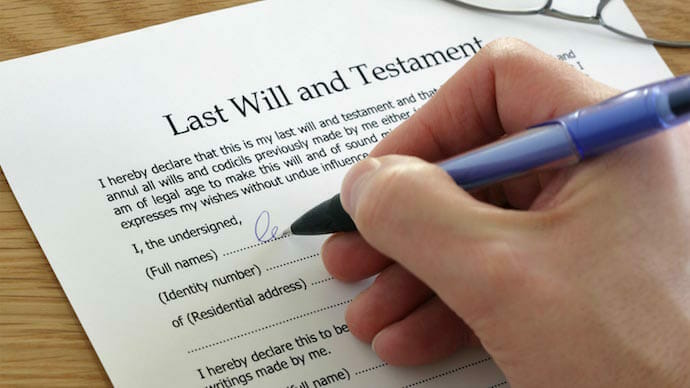
It’s critical to guarantee that your property and belongings (also known as your estate) will go to the people and organizations you select, such as family members and causes you want to support after you pass away.
Personal belongings, as well as assets such as:
- property (in the UK or overseas)
- savings and investments
- insurance funds
- pension funds
If you die without a valid will, your family may find it difficult to handle your affairs. According to the intestacy regulations, your estate would be divided. Only married couples, civil partners, and certain close relatives can inherit under these conditions.
Even if you live together without being married or in a civil partnership, your partner won’t be eligible to inherit unless you’ve made a will. You can write your will using a will writing kit without the need of any lawyer.
It’s important to make a will if you:
- own property or a business
- have children
- have savings, investments or insurance policies
How to make a will
Make a list of the assets you want to include in your will. Consider how you’d like them divided among your beneficiaries after that. If you wish to contribute to a charity, make sure the organization’s full name, address, and registered charity number are included.
You’ll also have to think about: who will carry out your wishes in a will (your executors) what arrangements you’ll make if you have children – such as selecting a legal guardian or establishing a trust for them any other preferences you may have – for example, the type of funeral you want
A solicitor may help you with any of these concerns.
Using a solicitor
You may compose your own will, but only if your will is simple. You should still obtain legal advice to review your own will even if you create it yourself.
Making a will without the help of a solicitor may lead to errors, and anything might be unclear, especially if you have numerous beneficiaries or your finances are complicated. Your executor would need to correct any mistakes and could be required to pay legal fees. This will reduce the size of your inheritance. Mistakes in your will can render it invalid.
A solicitor will charge you a fee to prepare your will, but they will outline the expenses from the start.
When you need legal representation, there are certain things to keep in mind. When you use a solicitor, here are some of the reasons why it’s essential:
If you live together with someone who is not your spouse, husband, or civil partner and have a dependent such as a kid who can’t care for themselves, you may be able to claim under Will. You can submit a claim if any of the circumstances listed above applies to you.
Finding a solicitor
Visit our Find a Solicitor website to search for your local solicitor and use the “quick search” option “Wills and probate.”
Choosing a solicitor who is a member of our Wills and Inheritance Quality Scheme ensures that your lawyer will adhere to our high standards for wills and probate services. You’ll be working with a specialized legal professional who is licensed and insured, unlike most other will-writing firms.
Information you’ll need to give your solicitor
After you’ve gathered all of the information you’ll need to draw up your Will, your lawyer will need to know:
After you die, your loved ones might need access to the bank account or other financial assets that you’ve previously set out in your will. details of who should have these assets after you pass away any additional instructions – such as the type of funeral you want information about any children and family members, including those who aren’t biologically yours – step-
Executors
After you pass away, your executors are the individuals named in your will who will follow through with your instructions. They can be family or friends, but you should first inquire if they’re interested in assuming this duty since it comes with a lot of responsibility. A professional person, such as your lawyer, could also act as an executor.
There are two or four core executors, depending on how many individuals will be using the plan. If your core operator becomes unable to perform under your instructions, you should have a backup executor in place.
After you’ve made your will
Verify that it’s real. Your will is only valid if two other people witness you signing it. They must sign the will, but they are not obligated to read it. The following are the qualifications of your witnessing:
- be over 18
- not be your beneficiaries
- not be your beneficiaries’ spouses or civil partners
Keep it safe
Make sure your executors know where your will is kept. They must have access to it without requiring a legal license. Don’t put your will in a bank safety deposit box. Because the bank does not have the authority to open it until after the executor applies for lawful access, which won’t be provided until after your will,
You can leave your will with a solicitor (they’ll give you a copy). If you choose to go this route, there is no cost for the service. You may also store it at the Probate Service of Northern Ireland or Scotland.
Keep it up to date
Every five years, you should reread your will to ensure that it is current. This is especially crucial if your circumstances change — for example if you acquire a new spouse or acquire more assets
- If you marry or form a civil partnership, your existing will is automatically withdrawn.
- To obtain the most out of your money, invest it in a worthwhile asset that will appreciate much more rapidly than a savings account.
- Get help to end a marriage or separate from your spouse.
If you need a solicitor to assist you to create your will, why not contact FJ solicitors. They have a staff of committed experts on hand to help you. Visit our website regularly to stay informed on key issues in the legal sector.
Make a will for your solicitor Your attorney will need to know the following information after you’ve gathered all of the data necessary to create your Will: – After you die, your loved ones might require access to your bank account or other financial assets that you’ve previously indicated.





